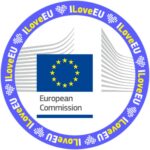Guidelines for Teachers: How to spot and fight disinformation
Year of production: 2021
Cover photo
This toolkit aims to give secondary teachers resources in order to start conversations with their pupils about the consequential topics raised by the threat of bad information. Among these are issues around public health, democracy, and the cultural and legal norms underpinning our societies.
There are no absolute answers to the questions that inevitably arise when we think deeper about how to discern truth and falsehood. Nevertheless, it is precisely a capacity to negotiate ambiguity and come to judgements through critical thinking that we must encourage in our young people. With this in mind, this toolbox of lessons does not offer a series of prescriptions or axioms. Rather the materials provided are designed to inspire discussion. Through debate and exchange, pupils will have a chance to experiment in unpicking the multifaceted nature of information both individually and as part of a conversation with peers. These are key skills if they are to become responsible citizens online and in society more broadly. Pupils will thus encounter such characters as Machiavelli, Pope Urban II and today’s QAnon conspiracy theorists.
By drawing both from history and current affairs, these case studies will help young people situate disinformation in the world around them while also contextualising it as a phenomenon with historical precedents and parallels. We hope this will help teenagers develop the intellectual and personal resources to navigate disinformation in their adult lives.





